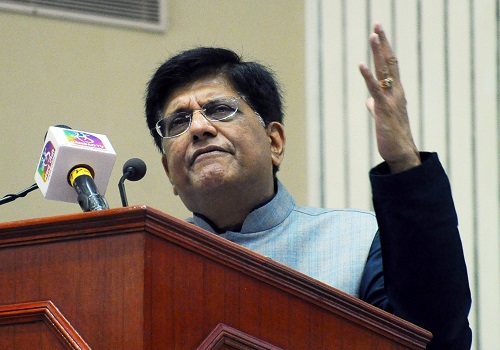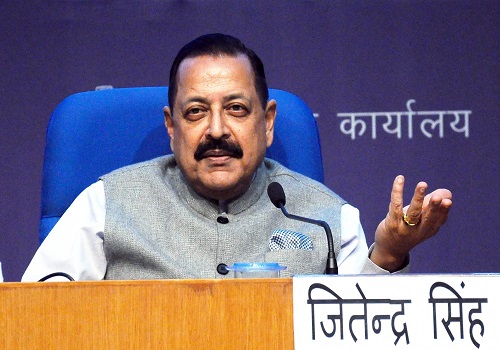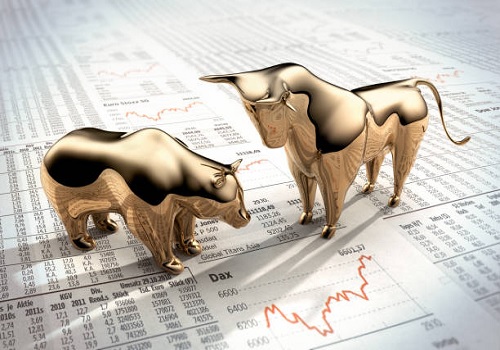Nifty, Sensex close flat after volatile session
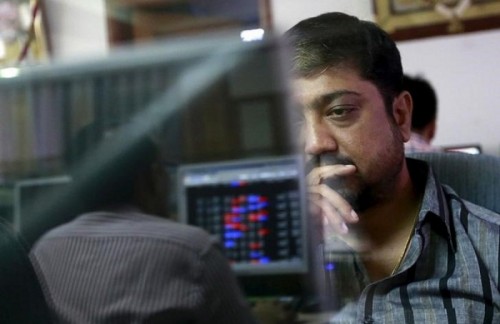
Follow us Now on Telegram ! Get daily 10 - 12 important updates on Business, Finance and Investment. Join our Telegram Channel
Indian equity benchmarks ended flat after a volatile session on Friday, halting a five-day winning run amid weak global cues. Benchmark indices started lower and traded in red for most part of the day, as traders got anxious with United Nations’ report that India is forecast to grow at 6.5 per cent in fiscal year 2022, a decline from the 8.4 per cent GDP estimate in previous financial year, and while the country's economic recovery is on a solid path amid rapid vaccination progress, coal shortages and high oil prices could put the brakes on economic activity in the near term. Traders remained cautious with Niti Aayog Vice-Chairman Rajiv Kumar’s statement that the country needs much more 'equitable' growth as inequality could lead to tensions in society. He further said the country's democracy will not permit the kind of K-shaped growth it has seen in the past, where different sections of the population have been growing at different paces.
Benchmarks continued their lackluster trade in afternoon session, as the wholesale inflation across the country rose to 13.56 per cent in December. The high rate of inflation in December 2021 is primarily due to rise in prices of mineral oils, basic metals, crude petroleum & natural gas, chemicals and chemical products, food products, textile and paper and paper products etc as compared to the corresponding month of the previous year. Some anxiety remained among traders with a domestic rating agency ICRA’s statement that the upcoming budget is unlikely to make any provision for recapitalisation of state-owned lenders, as over Rs 3.36 lakh crore has been spent on the banks in the last six years. However, key indices managed to trim most of their losses in late afternoon deals, as traders took some support with data showing that exports in December 2021 were $37.81 billion, as compared to $27.22 billion in December 2020, exhibiting a positive growth of 38.91 per cent. Traders took note of report that the FSDC sub-committee headed by Reserve Bank Governor Shaktikanta Das has reviewed the economic situation in the backdrop of the COVID-19 pandemic and resolved to keep a close watch on the unfolding developments with a view to ensure financial stability.
On the global front, Asian markets settled mostly lower on Friday following the broadly negative cues from Wall Street, with energy and technology stocks primarily dragging the markets to the downside. Traders remain worried and cautious amid the rapid spread of the coronavirus Omicron variant in most countries and the likely economic impact of the related curbs. European markets were trading lower as anxiety over the Fed's inflation-combat strategies eclipsed the optimism generated by the earnings updates. Back home, on the sectoral front, aviation industry stocks were in focus as ratings agency Crisil said the ongoing third pandemic wave led by Omicron could pose fresh turbulence for air traffic, pushing its full recovery into fiscal 2024. The agency had earlier expected the full recovery to happen in fiscal 2023. Auto components industry were in watch as rating agency ICRA revised downwards the revenue growth forecast for the auto components industry in the current fiscal (FY22) by 200 bps to 15-17 percent from the earlier estimates, citing the impact of the Omicron wave, delayed recovery in semiconductors shortage and muted two-wheelers demand.
Finally, the BSE Sensex fell 12.27 points or 0.02% to 61,223.03 and the CNX Nifty was down by 2.05 points or 0.01% to 18,255.75.
The BSE Sensex touched high and low of 61,324.59 and 60,757.03, respectively and there were 12 stocks advancing against 18 stocks declining on the index.
The broader indices ended in green; the BSE Mid cap index rose 0.22%, while Small cap index was up by 0.50%.
The top gaining sectoral indices on the BSE were Capital Goods up by 1.43%, Realty up by 1.10%, Industrials up by 1.00%, IT up by 0.95% and TECK up by 0.73%, while Telecom down by 1.20%, FMCG down by 0.60%, Healthcare down by 0.50%, Auto down by 0.35% and Bankex down by 0.35% were the top losing indices on BSE.
The top gainers on the Sensex were TCS up by 1.84%, Infosys up by 1.64%, Larsen & Toubro up by 1.32%, Tech Mahindra up by 1.18% and HDFC Bank up by 1.11%. On the flip side, Asian Paints down by 2.66%, Axis Bank down by 2.54%, Hindustan Unilever down by 2.13%, Mahindra & Mahindra down by 1.61% and Wipro down by 1.55% were the top losers.
Meanwhile, ratings agency Crisil has said the ongoing third pandemic wave led by Omicron could pose fresh turbulence for air traffic, pushing its full recovery into fiscal 2024. It said that a material impact on the credit quality of airport operators, however, is unlikely as the dip in revenue is expected to be limited by a likely strong rebound, and the operators have adequate debt servicing cushions, liquidity buffers and financial flexibility to absorb the blip in traffic.
It stated an analysis of the top four private airports -- Delhi, Mumbai, Bengaluru and Hyderabad -- which accounted for 90 per cent of air passenger traffic handled by private airports and 50 per cent of all passenger traffic last fiscal, indicates as much. The high infection rate of Omicron has resulted in several state governments and local authorities, such as Delhi and Mumbai, announcing restrictions on movement.
In fact, domestic traffic is down by 25 per cent from the highs of December 2021 in the first week of January 2022 itself. Both personal and business travel will take a hit in January and February, leading to air traffic plunging an estimated 30 per cent sequentially in the fourth quarter of this fiscal. It mentioned ‘this spill-over impact is likely to delay recovery of air traffic from our earlier expectation of it happening in fiscal 2023.’ However, recovery is expected to be achieved within the early part of fiscal 2024.
This is because air traffic is likely to rebound faster this time around, compared to the second wave, when it took from May to November 2021 to recover from 16 per cent to 85 per cent of the fiscal 2020 traffic. It added the rebound confidence is underpinned by higher proportion of vaccinated populace -- over 71 per cent now vis-a-vis only 5 per cent as of end May 2021 -- as well as learnings of governments and authorities from the past waves in implementing Covid-19 protocols for safe travel. The case load, too, is expected to peak in February and return to the December 2021 level by the end of March 2022.
The CNX Nifty traded in a range of 18,286.95 and 18,119.65 and there was 20 stocks advancing against 30 stocks declining on the index.
The top gainers on Nifty were Tata Consumer Product up by 4.19%, Indian Oil Corporation up by 1.77%, TCS up by 1.73%, Infosys up by 1.49% and Adani Ports and SEZ up by 1.46%. On the flip side, Asian Paints down by 2.67%, Axis Bank down by 2.63%, UPL down by 2.10%, Hindustan Unilever down by 2.06% and ONGC down by 1.86% were the top losers.
European markets were trading lower; UK’s FTSE 100 decreased 6.26 points or 0.08% to 7,557.59, France’s CAC decreased 44.57 points or 0.62% to 7,156.57 and Germany’s DAX decreased 96.07 points or 0.6% to 15,935.52.
Asian markets settled mostly lower on Friday, as the market sentiments got dulled with the quicker interest rate hike prospects in the wake of surging inflation rates. Anticipation over hawkish measure of Federal Reserve has prompted to shift investments from high growth shares to value stocks. Benchmark interest rate hike by Bank of Korea also accelerated worries over monetary policy tightening. Japan’s Nikkei was the topper loser among Asian indices due to wary over fresh virus concerns. Japanese technology stocks leading the declines. Tokyo recorded a new four-month high in Covid infections on Thursday.
Above views are of the author and not of the website kindly read disclaimer
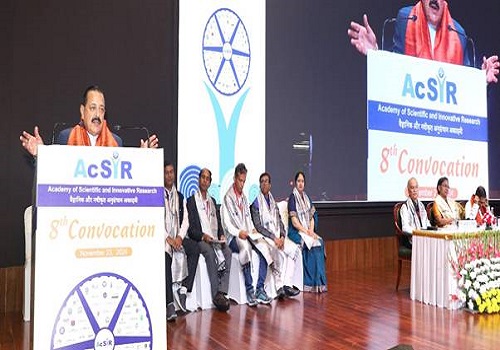



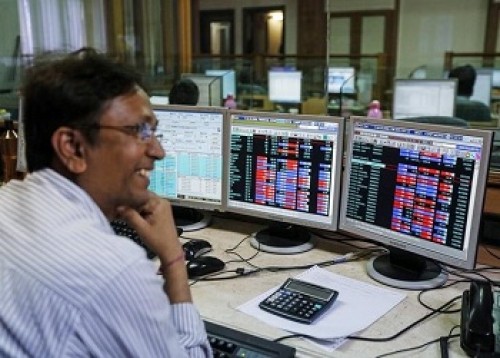

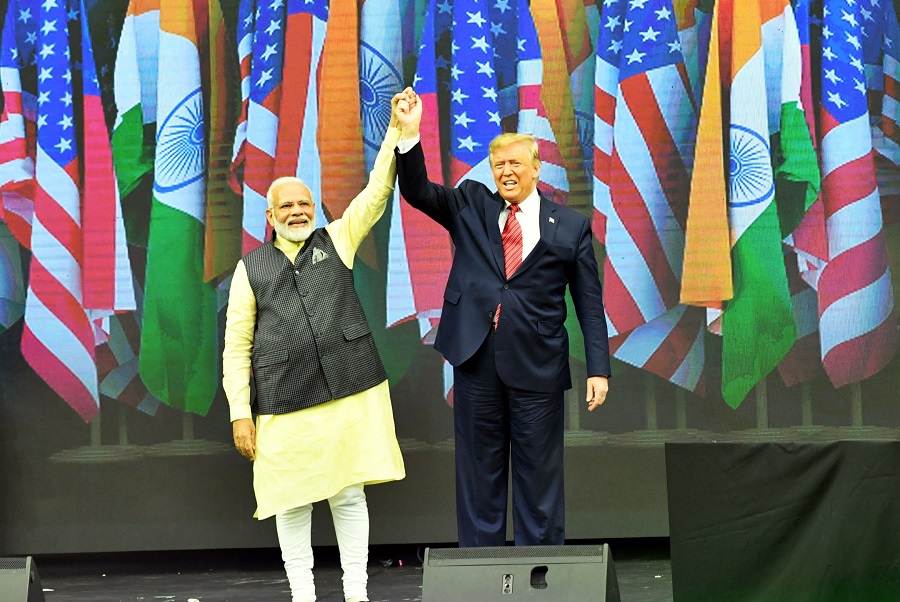
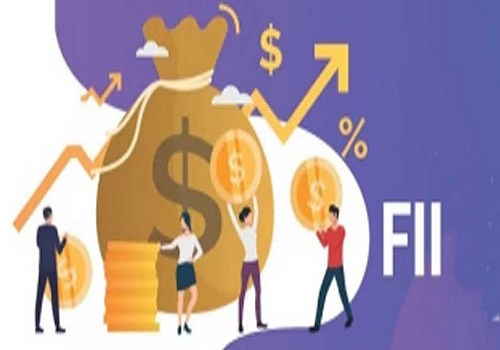

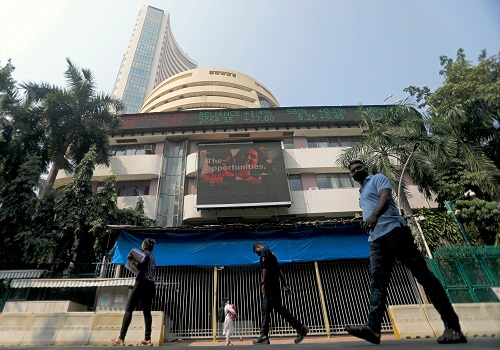
Tag News

Weekly Market Analysis : Markets strengthened recovery and gained nearly 2% in the passing w...






